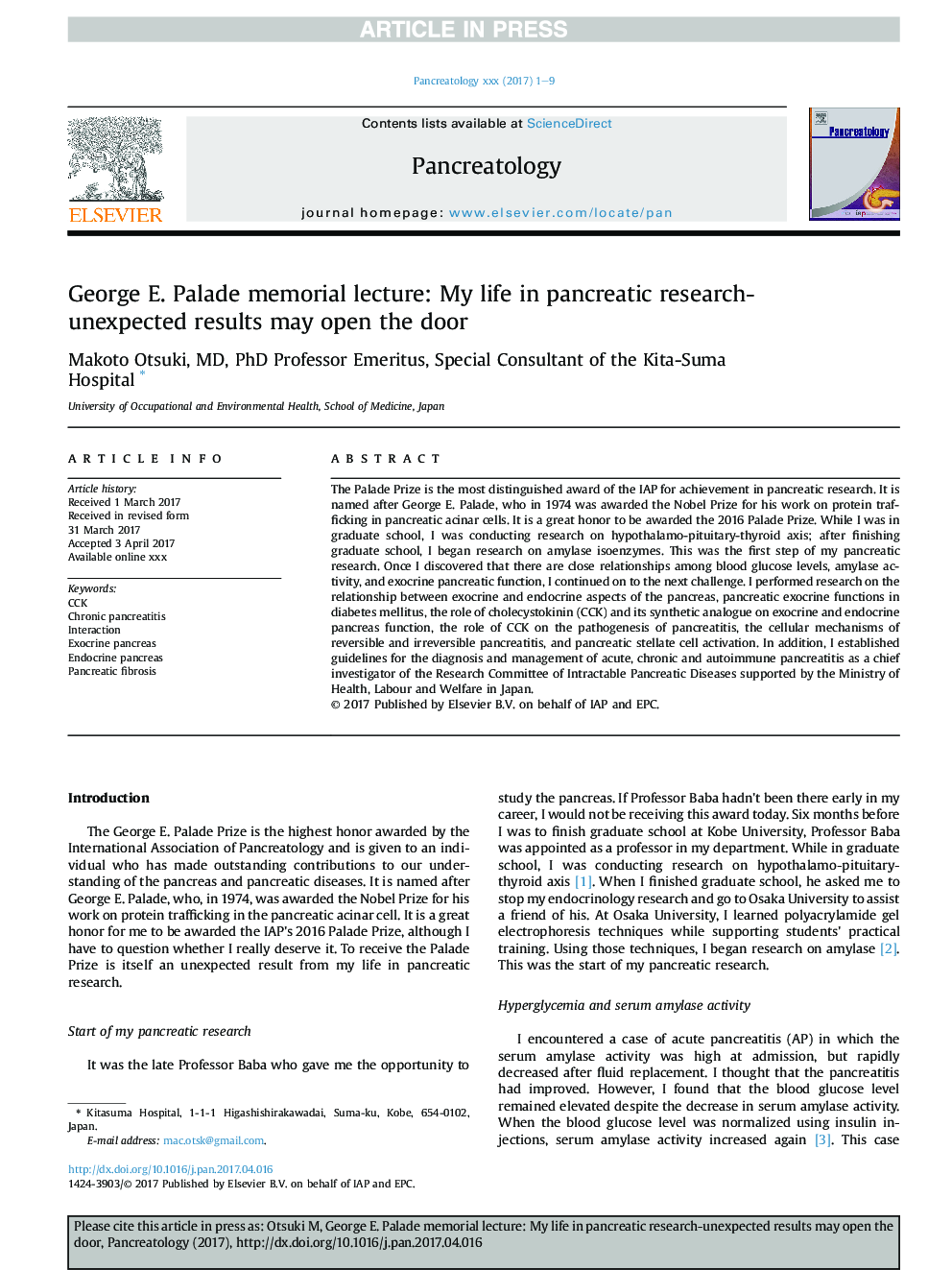| Article ID | Journal | Published Year | Pages | File Type |
|---|---|---|---|---|
| 5661266 | Pancreatology | 2017 | 9 Pages |
Abstract
The Palade Prize is the most distinguished award of the IAP for achievement in pancreatic research. It is named after George E. Palade, who in 1974 was awarded the Nobel Prize for his work on protein trafficking in pancreatic acinar cells. It is a great honor to be awarded the 2016 Palade Prize. While I was in graduate school, I was conducting research on hypothalamo-pituitary-thyroid axis; after finishing graduate school, I began research on amylase isoenzymes. This was the first step of my pancreatic research. Once I discovered that there are close relationships among blood glucose levels, amylase activity, and exocrine pancreatic function, I continued on to the next challenge. I performed research on the relationship between exocrine and endocrine aspects of the pancreas, pancreatic exocrine functions in diabetes mellitus, the role of cholecystokinin (CCK) and its synthetic analogue on exocrine and endocrine pancreas function, the role of CCK on the pathogenesis of pancreatitis, the cellular mechanisms of reversible and irreversible pancreatitis, and pancreatic stellate cell activation. In addition, I established guidelines for the diagnosis and management of acute, chronic and autoimmune pancreatitis as a chief investigator of the Research Committee of Intractable Pancreatic Diseases supported by the Ministry of Health, Labour and Welfare in Japan.
Related Topics
Health Sciences
Medicine and Dentistry
Gastroenterology
Authors
Makoto (Professor Emeritus, Special Consultant of the Kita-Suma Hospital),
